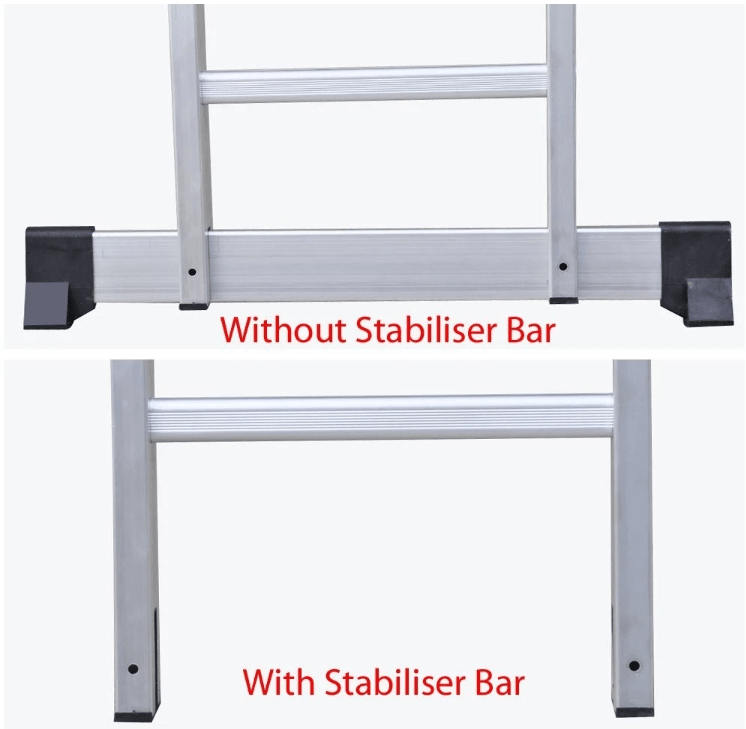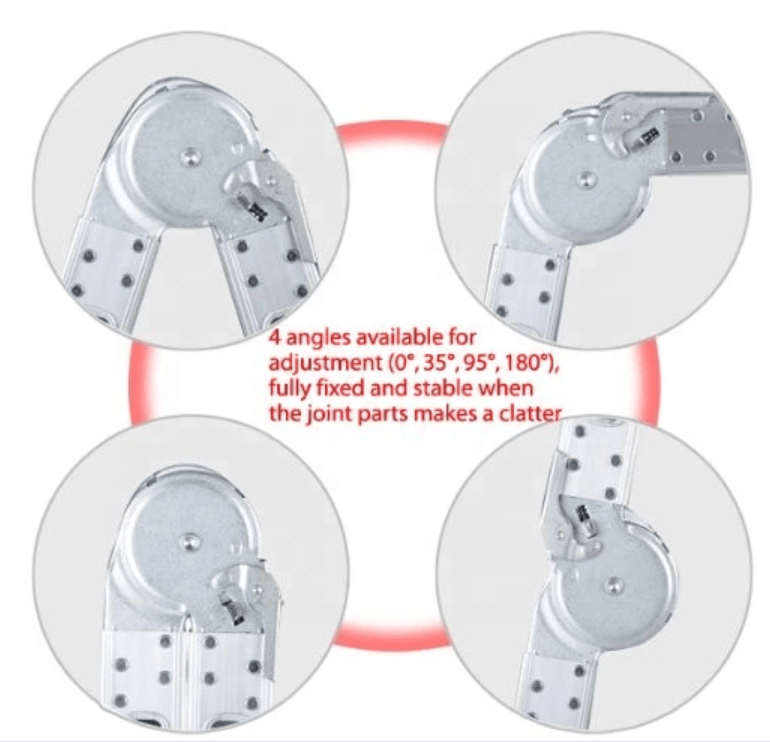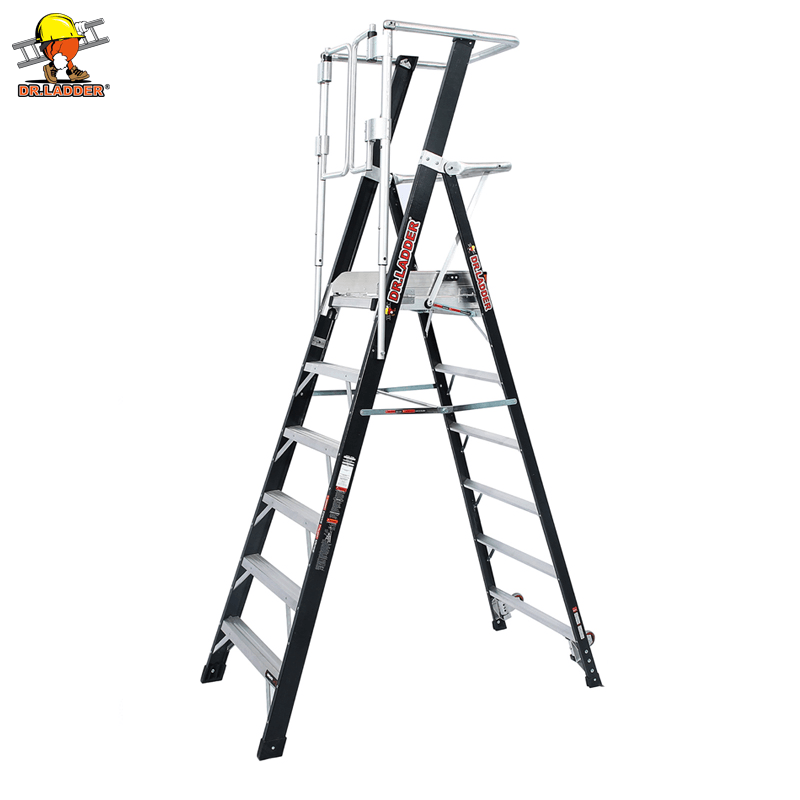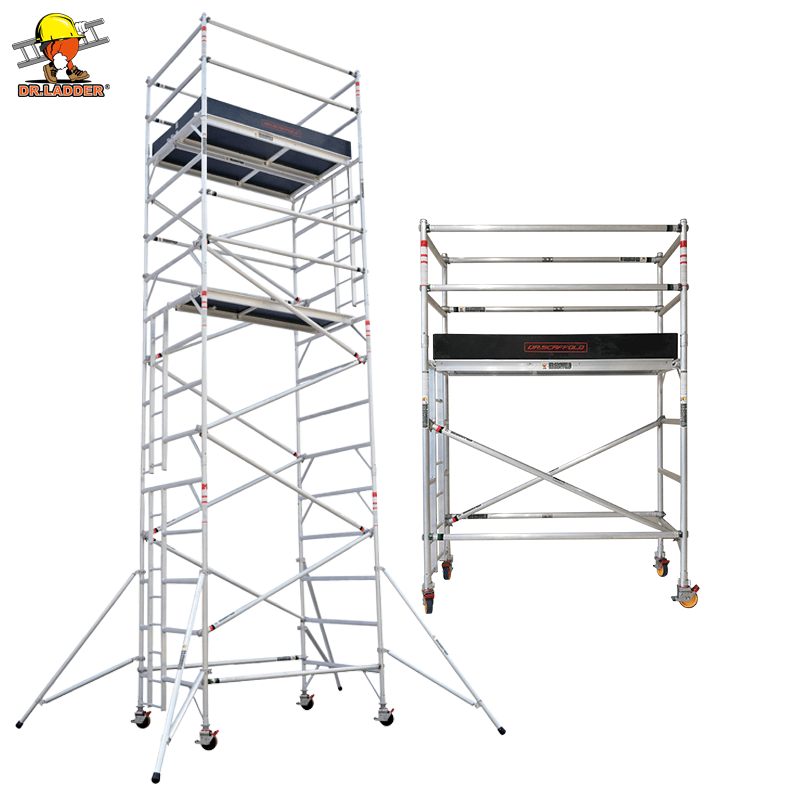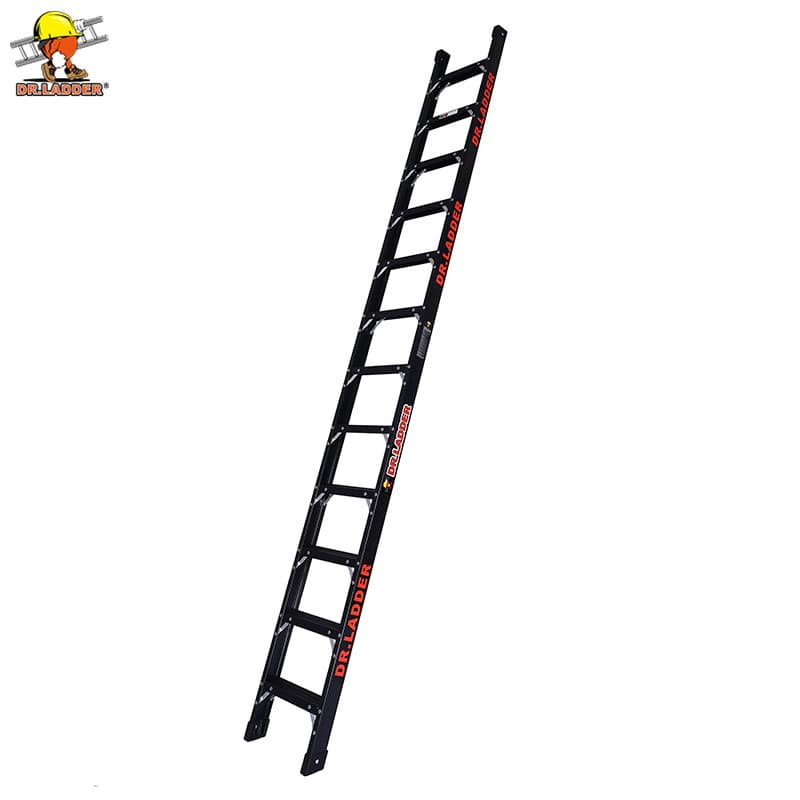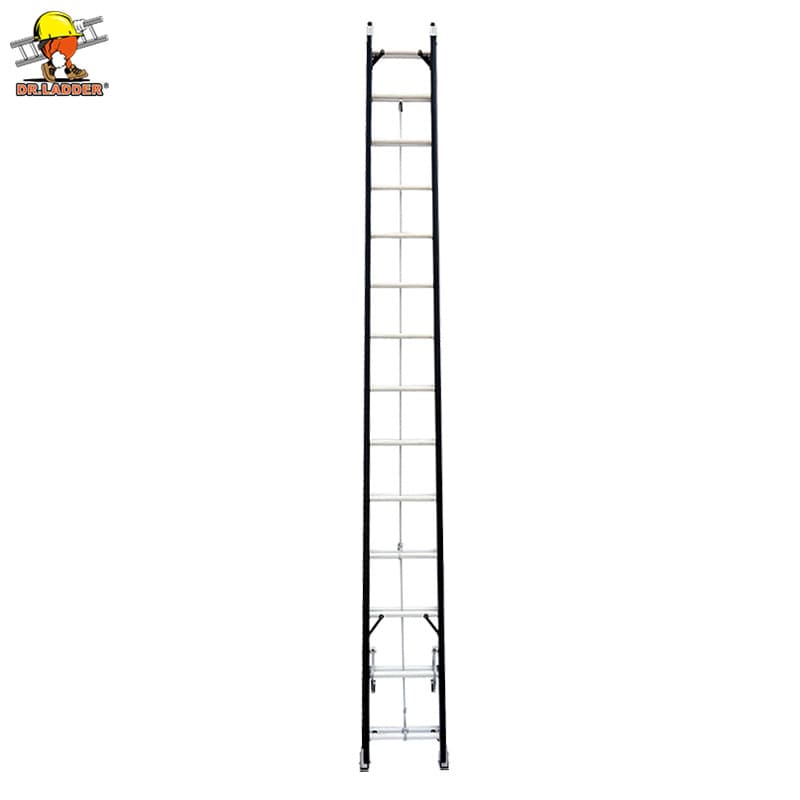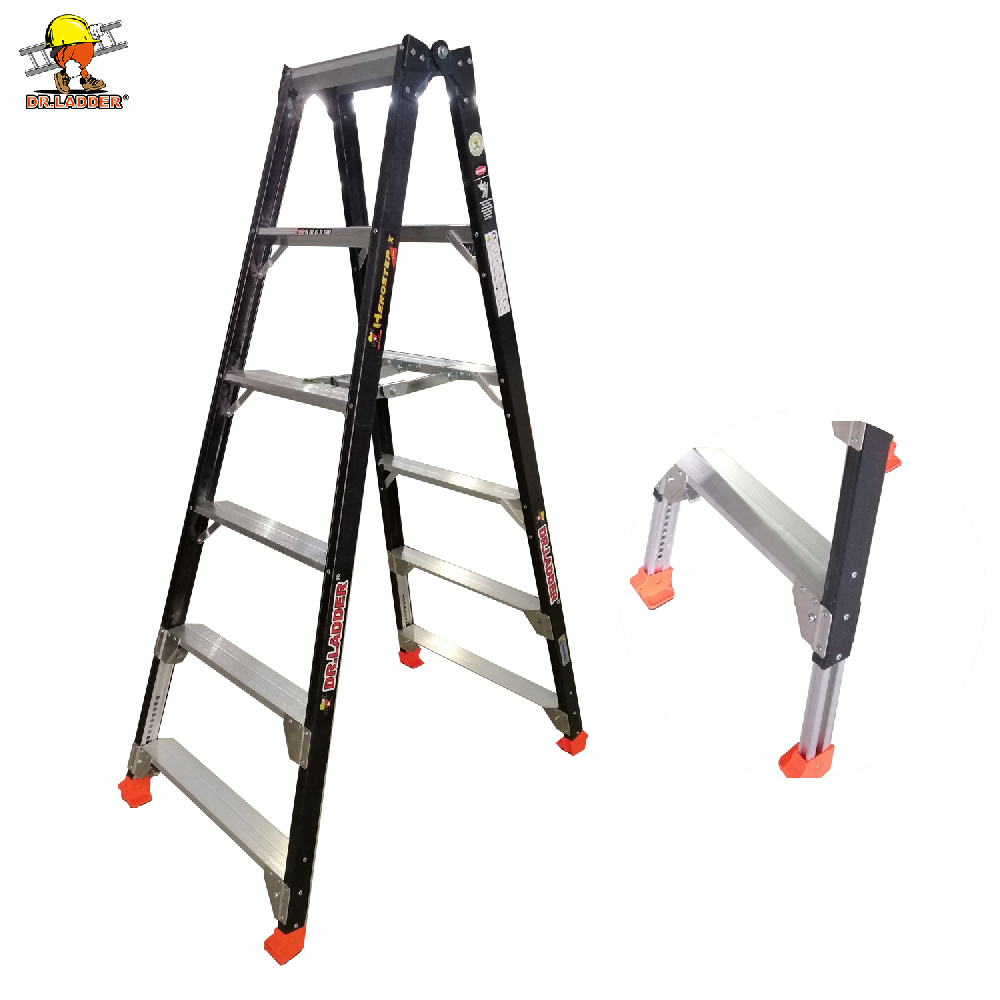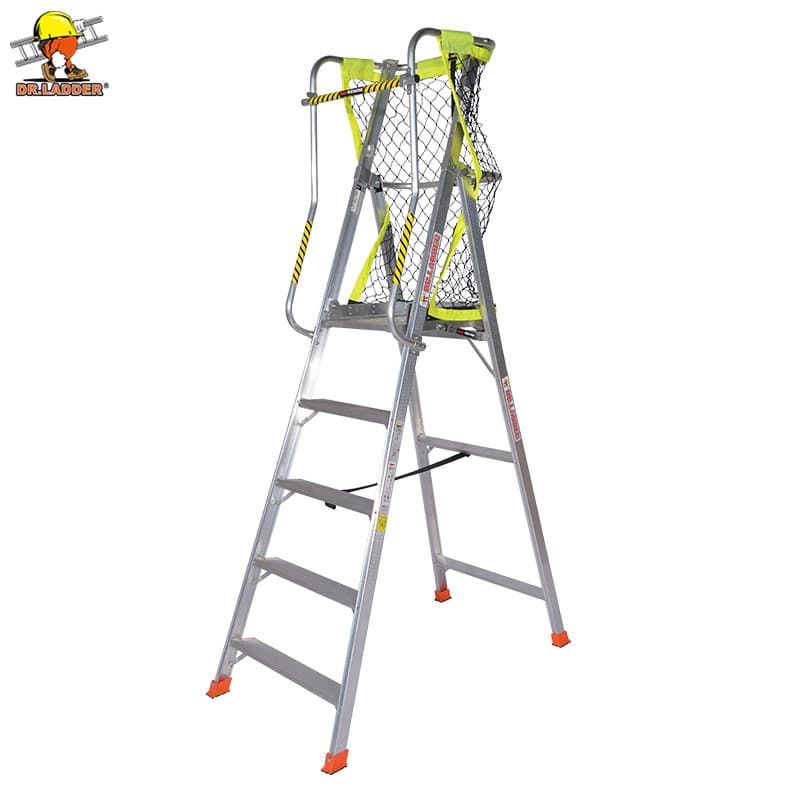Product Description
Aluminum Multi-Purpose Folding Step Ladder


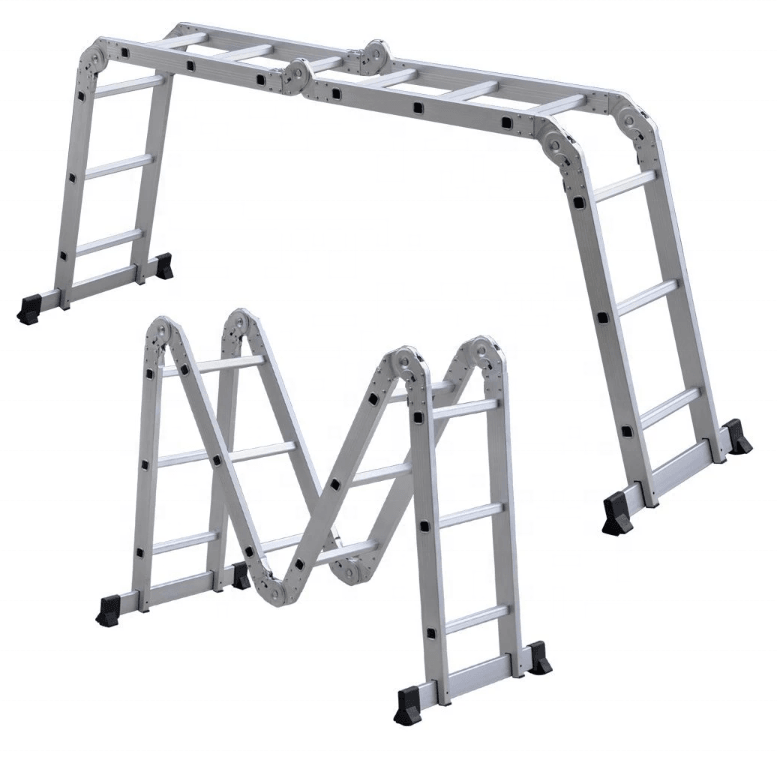


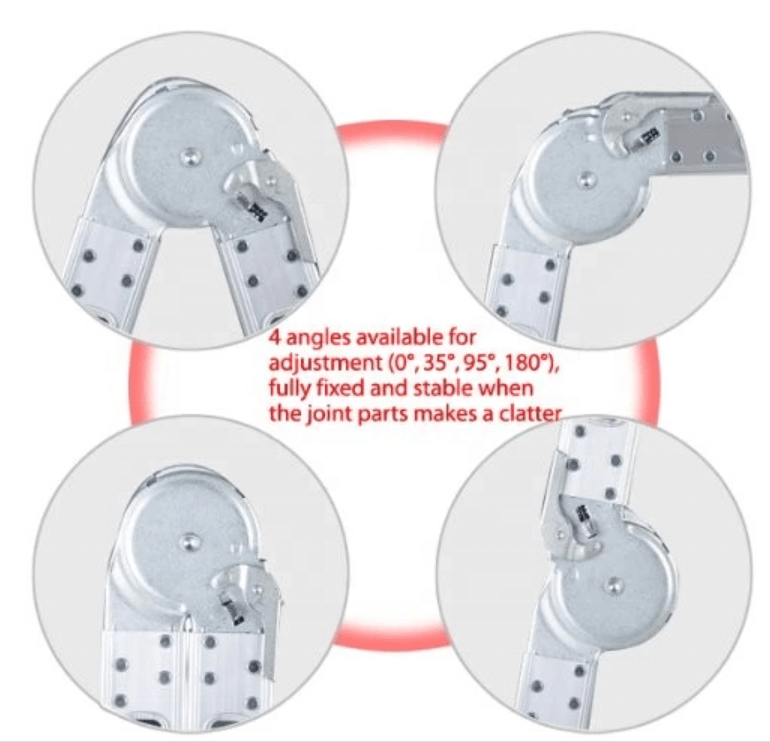
What you don't know can hurt you till when it happens like:
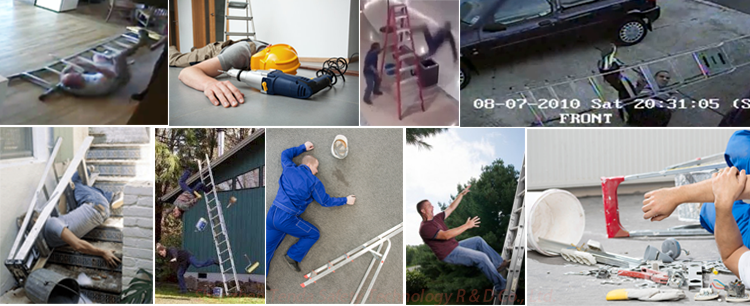
Are the ladders you purchased really safe?
Let's see the truth.
You may have purchased a variety of ladders, like these:
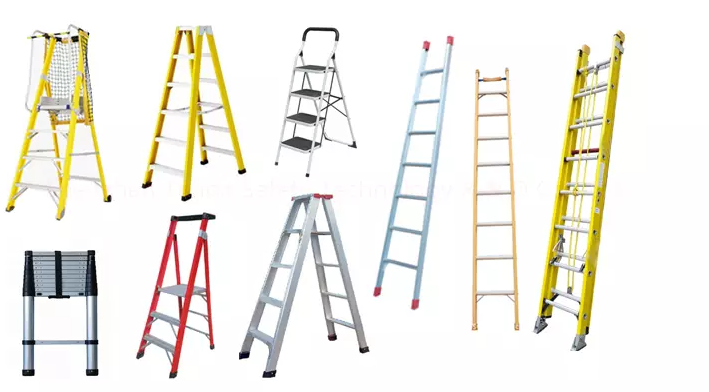
So many! But how to choose the right ladders?
Five key elements of ladder selection are: Style, Height, Capacity, Materials, and Unique Product Solutions.
1. Selecting the Right Ladder Type
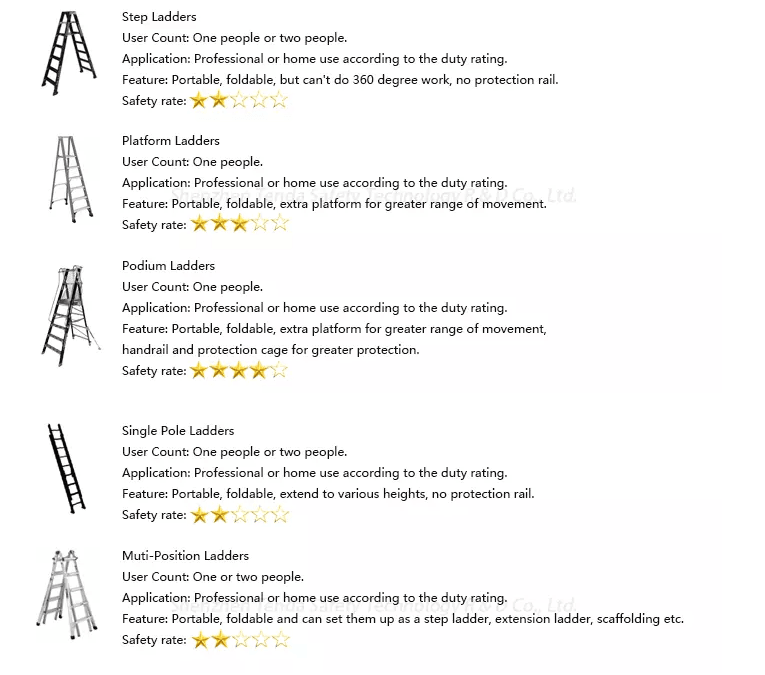
2. Selecting the Right Ladder Height and Reach
The maximum reach height can be up to 4 feet higher than the actual height of ladder.
Example: A 6-foot step ladder offers maximum reach height of 10 feet.
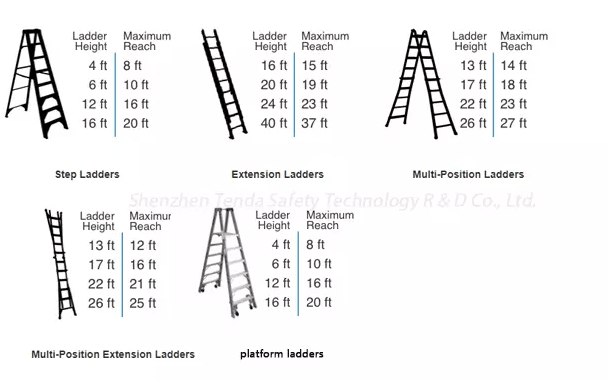
3. Selecting the Right Weight Capacity
Performance system matches the duty rating of the ladder according to international standard including ANSI, EN131, AS/ZNS etc.
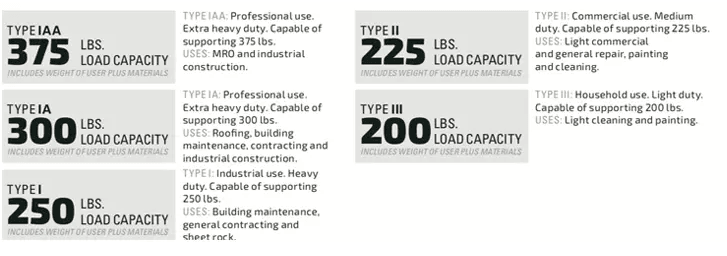
4. Selecting the Right Material
It's important to consider what material your ladder is made from. Tenda offers ladders made from both fiberglass and aluminum. Each material offers unique benefits suited to particular conditions, applications, or preferences.
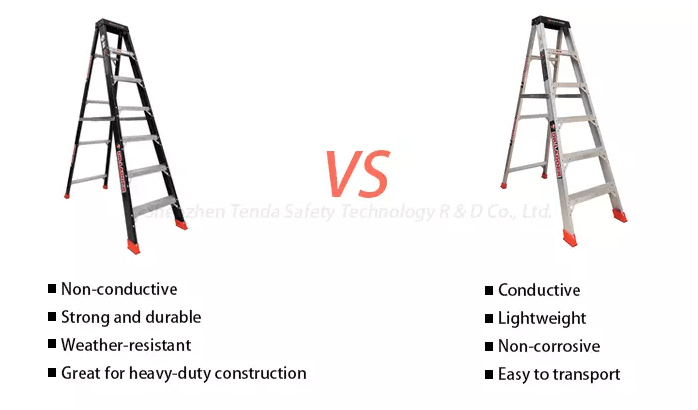
5. Selecting the Unique Product Solutions.
Tenda offers a large selection of innovative designs to tackle any job.
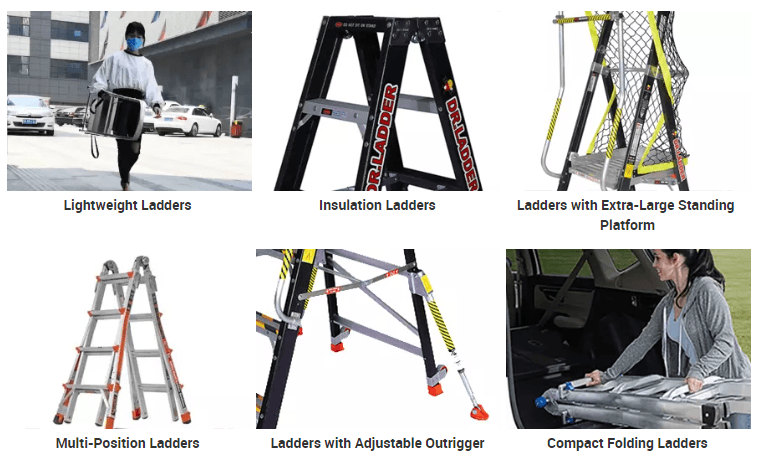
According to the U.S. Consumer Product Safety Commission, each year finds about 165,000 ladder-related injuries occurring. Many are preventable with some common sense and following basic ladder safety.
At DR.LADDER, all of our products are designed and constructed to meet or exceed applicable standards and requirements of the American National Standards Institute (ANSI), Occupational Safety and Health Administration (OSHA), and Australian Standards Association (AS).
Please
Inspection before each use
1. Inspect thoroughly for missing or damaged components. Never use a damaged ladder and never make temporary repairs.
2. Inspect thoroughly for loose fasteners. Make sure all working parts are in good working order (lubricate if necessary).
3. Destroy ladder if damaged, worn, or exposed to fire or chemicals.
Consider before each use
1. Metal ladders conduct electricity. Keep away from electrical circuits.
2. Consult manufacturer for use in chemical or other corrosive environments.
3. Use ladder only as outlined in instructions. Ladders are designed for one person only unless otherwise noted (i.e. twin front ladders). Do not overload.
4. Do not use in high winds or during storm.
5. Do not use if in poor health, if taking any drugs or alcoholic beverages, or if physically handicapped.
6. Keep shoes clean. Leather soles should not be worn.
7. Never leave ladder set up and unattended.
8. Pay close attention to what you are doing.
Take precaution by following these safety guidelines
1. When climbing a ladder, face the ladder with your body centered between the rails and maintain three points of contact (both hands and one foot, or two feet and one hand).
2. Carry tools and materials in a belt, apron or pouch.
3. Use a rope and bucket to pull up large, heavy or awkward items.
4. Do not lean off the side of the ladder.
5. Don't use a ladder in high winds. For other severe weather, if you still need to go up the ladder, have another person hold the ladder for security.
6. Double-check that locks are secured on a ladder that is adjustable or able to extend.
7. Regularly inspect ladders for loose rungs, dents, cracks or sharp edges.
8. Don't use a ladder that has been damaged or appears unsafe.
9. Only use a ladder on a solid, level surface.
10. Do not use ladders on ice or snow, or if they are wet.
11. Observe duty ratings that are posted on the ladder, which include weight limitations for each type of ladder.
12. Refer to the ladder height and reach for each ladder to ensure you're using the correct ladder for the job.
13. Make sure your ladder meets OSHA regulations and that you follow safety guidelines when using a ladder.
14. Use two people to safely carry a long ladder.
15. When carrying an extension ladder, the center should be balanced, resting on your shoulder with your arm through the ladder.
16. If you're dealing with electricity, make sure you use a fiberglass ladder.
17. Wear shoes with non-slip soles.
18. Make sure your body is centered while working on a ladder.
19. Don't skip steps when climbing down a ladder.
20. Don't stand above the highest level of the ladder.
But how to distinguish between good and bad ladders?
1. Comparing material
Strike the fiberglass by hand to check the hardness, whether it is deformed, whether the surface is smooth, and whether the color is uniform.
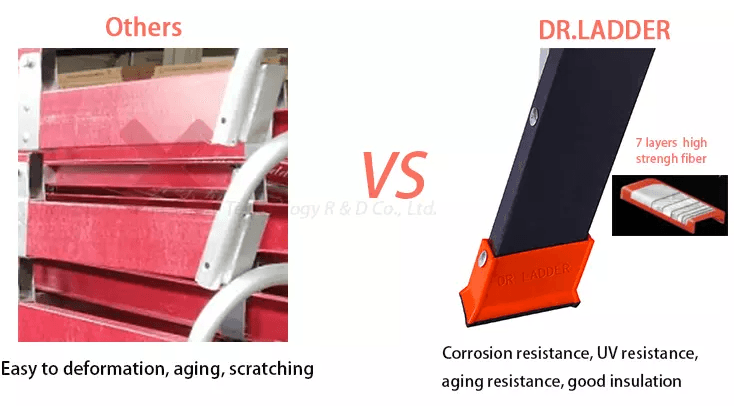
2. Comparing Product Structure
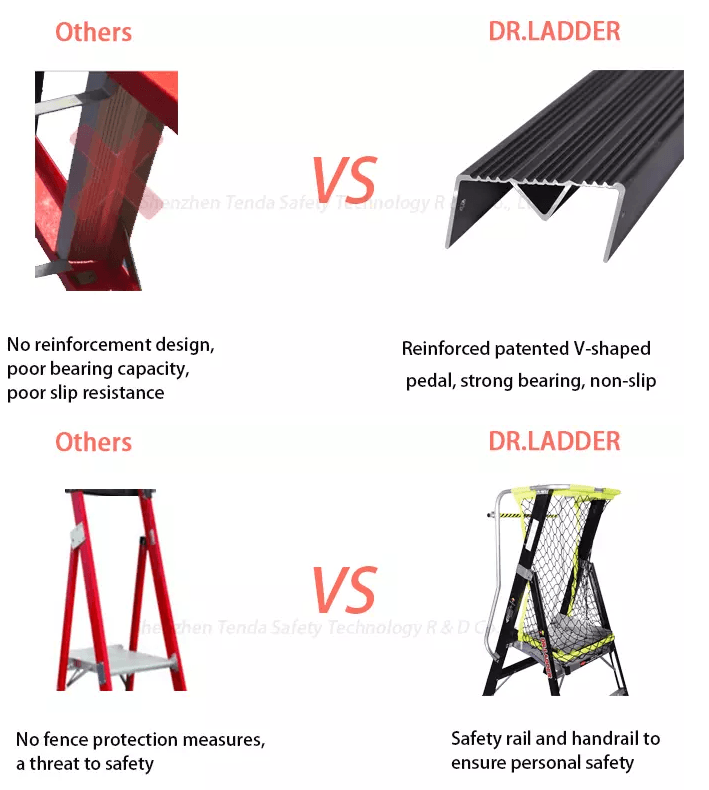
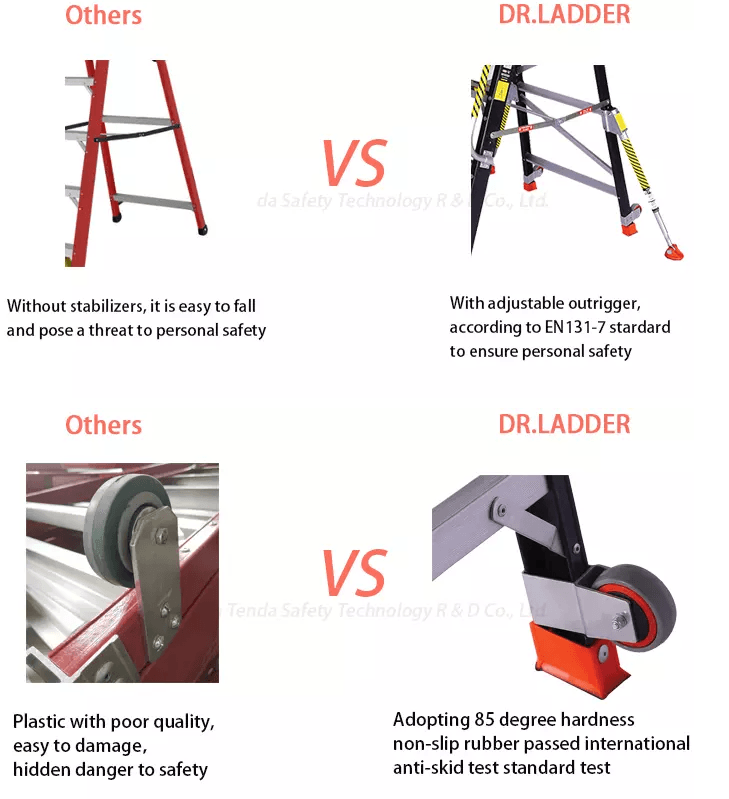

3. Checking Certificates and Test Reports
We have our own testing laboratory, material and design are based on international standards.
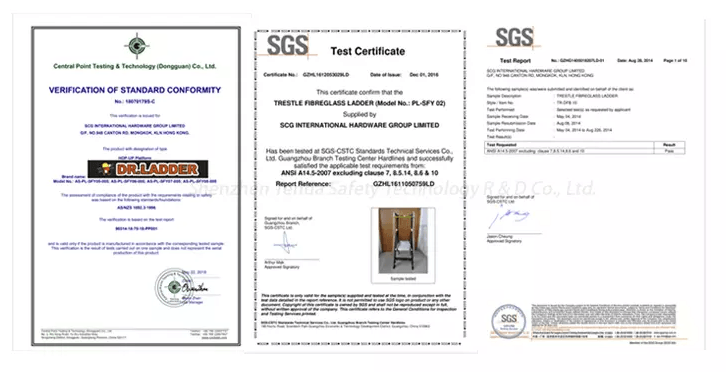

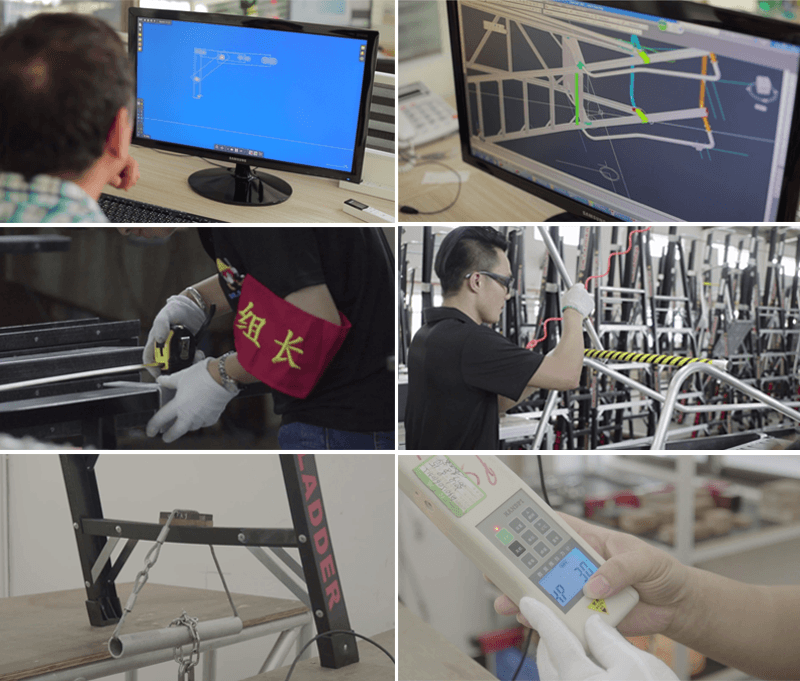
Why choose DR.LADDER?
It uses 6061 high-strength alloy aluminum, and its strength and force have passed the EN131 / ANSI / AS/NZS 1892 standard test.
It adopts seven layers of high-strength fiber that is anti-aging. Therefore, it has longer service time and safer to use. It is also pass the electrical resistance test at AC25000 volts and DC 90000 volts, which achieve the fiber-insulated effect.
Its horizontal pattern has the great efficiency for anti-slip.
With the patent designed anti-bounce system, there will be no accident due to the pedal moving upwards.
Adopting 85 degree hardness non-slip rubber, it still passed EN131 / ANSI / AS/NZS anti-slip standard test.
All the ladder parts passed the 48-hour salt test, so that the parts will not be ineffective due to rust.
The sticker also passed EN131 / ANSI / AS/NZS standard test. It has added anti-UV technology, which makes the sticker not easy to fall off or discolor due to long-term exposure.
All the ladder screws are equipped with gaskets and anti-separation screws to make sure the screws are tight enough.
The ladder passed all the required test of EN131 / ANSI / AS/NZS, not just part of the test.
Dr.ladder's products are featured with laser mark to guard against counterfeiting.
The ladder has applied for a patent for appearance, all rights reserved.
With a skirting device, it can prevent tool falling out of the ladder.
The anti-failure nylon belt makes the ladder have a second guarantee.
With a lock on the ladder, it can prevent user falling down when moving backwards.
The ladder is equipped with a flying wing steps, which can reduce the weight of the ladder and increase the bearing capacity, so that the ladder is not easily deformed and damaged.
Ingenious design, meticulous testing, to create the perfect safety ladder. Dr. Ladder makes every user, Safety Up - Safety Down - Safety Home.


